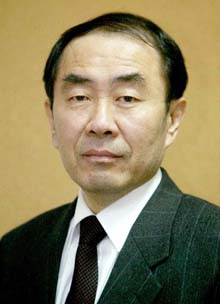 |
|
Jang Jungsoo, Editor of Hankyoreh English Edition
|
Jang Jungsoo, Editor of Hankyoreh English Edition
Preparations made by North Korea to test fire its Taepodong 2 missile have brought the issue into the international spotlight. If Pyongyang is playing the missile card because it wants to get the attention of the United States and the rest of the world, that strategy was partly successful. It needs to realize, however, that if it goes ahead with the test launch, the results will be the direct opposite of what it would like to see happen. It is making a big mistake if it thinks playing the missile card will get the U.S. to talk directly, a mistake that might have originated in a lack of understanding of American politics and culture. This latest development is strengthening the position of hardliners in the U.S., like Vice President Dick Cheney, who reject the idea of direct talks with Pyongyang. It is also welcome news for president George W. Bush, who is struggling against poor approval ratings. North Korea's latest move provides good material for uniting American public opinion behind Bush by making American voters feel insecure. The so-called "warmongering neoconservatives" might even be quietly hoping Pyongyang does fire that missile. American voters have traditionally tended to give strong support to "wartime presidents." Bush's ratings shot up after the terrorism of 9/11 and after the U.S. invaded Iraq. It was because of Iraq that Bush succeeded at reelection in 2002. It was none other than presidential advisor and political genius Karl Rove who strongly recommended the war commence at a time when Bush was hesitating about war in Iraq. It should be noted that Rove is back at work, focusing on the Republican Party's midterm election strategy, having just been cleared of the possibility of indictment in a scandal involving the leak of a CIA operative's identity. North Korea needs to understand that the U.S. and the West have an almost physiological aversion to yielding to military threats. In Western society, the English word "appeasement" has a negative nuance in that it reminds people of weakness and cowardice. That is because of historical experience dating back to what happened in World War II. Hitler came to power in 1933. When he withdrew from the Treaty of Versailles, France and Great Britain did nothing. When Hitler demanded the Sudeten region of Czechoslovakia, British prime minister Neville Chamberlain and other European leaders met him in Munich and signed the Munich Agreement, which accommodated his demands. Chamberlain said the agreement would bring peace to Europe, but a year later Germany annexed Czechoslovakia and invaded Poland. The Munich Agreement is considered an example of when the appeasement of a military threat brought about an even greater misfortune.It was also amateurish of North Korea to begin its missile test preparations if it got the idea after seeing plans made for direct dialogue between the U.S. and Iran. The U.S. decided to negotiate with Iran because of strong pressure from the European Union, above all else. The U.S. and North Korea already have the dialogue framework provided by the six-party talks, and so the situation is quite unlike the relationship the U.S. has with Iran. The six-party talks have produced some results, such as the Beijing agreement of September 19, 2005. China has played the important role of mediator in the six-party process, heightening its international diplomatic profile in the process; it would not want to see its influence reduced by the six-party framework dissolving into bilateral talks between Washington and Pyongyang. North Korea clearly needs to be more flexible, given the complexities of international politics when it comes to the missile issue. It should return to the six-party talks and discuss issues such as the creation of a peace regime on the peninsula, current financial sanctions placed against it, and its missile program, and while doing so within a six-party dialogue, it can work on the future possibility of having bilateral talks with the U.S.





